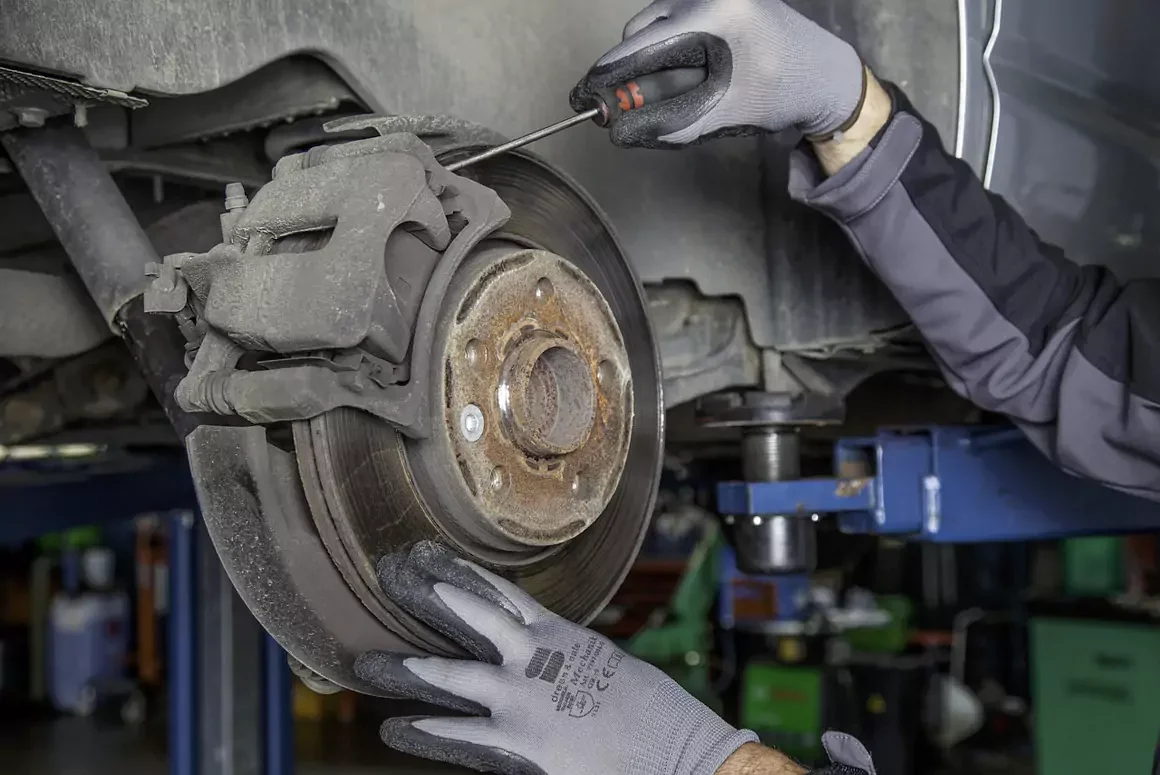Almost every driver does the basics every day: fill the tank, check the fluids, top up coolant or water, check tire pressure, and look out for warning lights. But not many drivers pay attention to the most critical checks, which basically refer to checking the car’s technical condition—especially the brake disks and pads—before any serious trip.
This article expounds on the need to perform important “simple” checks before hitting the road, especially if you’re about to do a long trip. As simple as these checks may appear, they are very important and can be a lifesaver for you and anyone else you’ll be carrying in the car.
The Hidden Danger of Neglected Brakes
Starting with the brakes, brake-related failures contribute significantly to vehicle crashes. Vehicle-defect analyses show brake failure accounts for about 42% of defect-related crashes, far exceeding other defects such as tire blowouts (22.41%), improper thread depth (10.81%), and defective wheels (5.64%). Moreover, broader collision data indicate around 22% of light-vehicle collisions involve brake-related issues. These figures underline that overlooking brakes is not a minor oversight—it can lead to severe accidents.
Why Pre-Trip Checks Matter?
- Early Detection of Wear: Brake disks and pads wear gradually; detecting them earlier gives you an edge in preventing their fatal failure while driving.
- Legal and Safety Regulations: Regular checks and inspections keep your vehicle compliant with jurisdictional laws and rules.
- Cost Savings: Replacing worn components before total failure saves on expensive repairs that follow an accident.
- Peace of Mind: Knowing that your brakes are functional reduces driver stress on long trips, improving focus and safety.
Understanding Brake Disk and Pad Wear
Brake disks (rotors) and pads operate under friction always, as long as the car is being driven. The pads wear down with every stop, and when the thickness decreases a lot, your car’s braking efficiency will drop, and then the pads may start gliding on the rotors. Brake rotors can warp, crack, or develop uneven thickness.
Signs to Notice:
- Squealing or grinding noises when braking.
- Vibrations or pulsating in the brake pedal or steering wheel under braking.
- Visible grooves or scoring on the disk surface.
- Dashboard warning lights (ABS or brake-system warnings).
- Longer stopping distances or spongy pedal feel.
Minimal Pre-Trip Brake Inspection Checklist
|
Inspection Item |
What to Look For / Action |
|
Brake Pad Thickness |
The pad’s visible thickness |
|
Rotor Surface Condition |
Look for deep grooves, cracks, rust build-up, and warping signs. |
|
Brake Fluid Level |
Always keep the fluid level around the recommended marking. |
|
Brake Fluid Condition |
Check color (dark fluid may indicate moisture/contamination). |
|
Brake Lines & Hoses |
Look under the hood for leaks, cracks, and bulges. |
|
Test Brake Response |
In a safe area, drive slowly and apply brakes: check for noise/vibration. |
|
Parking Brake |
Ensure it holds the vehicle on an incline. |
Note: For a professional check, a mechanic should measure pad thickness with calipers and inspect rotor run-out with a dial indicator, but the above steps help detect glaring issues.
When replacing any part of your car’s braking system, go for OEM parts or original aftermarket parts, especially if you’re driving a premium car like the Audi A4; the quality of brake discs for the Audi A4 must be considered anytime you’re up to replace the stock units.
Conclusion
Well, sometimes people can forget these things, but it’d be best to set up reminders that put you in check. While you may not need to check on the brakes and drivetrain components as often as you do to the engine components, make sure you inspect them before any long trip or cross-state picnics.
Staying aware of your vehicle’s brake condition does a lot of good and guides your driving style. If you checked and your brakes were already getting worn out, you already know you have to drive extremely carefully (if you must go with the car), or get them repaired/replaced as early as possible.
Reference Read: Statistics taken from marketresearchfuture.com


